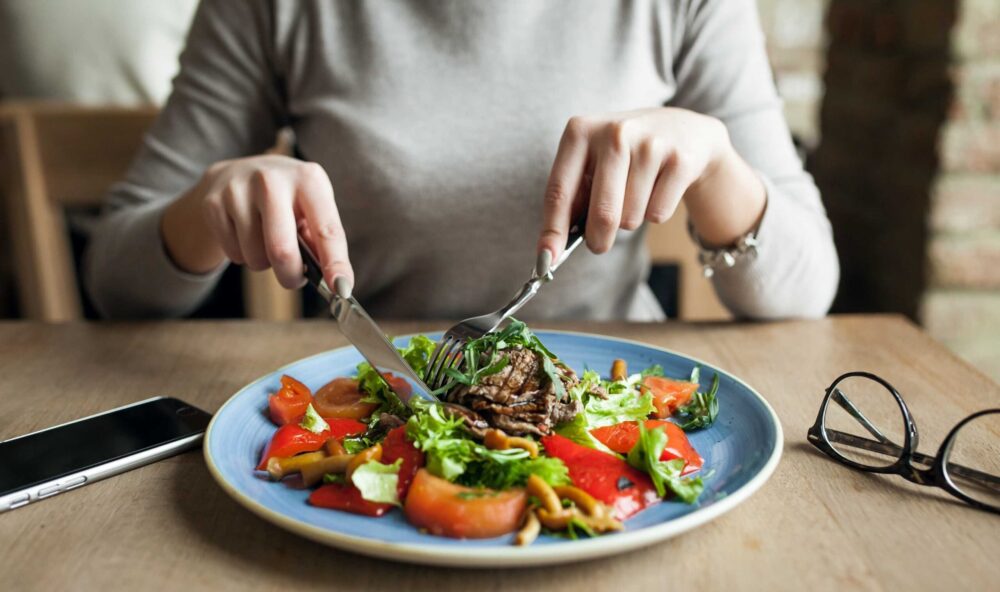The lockdown period during these times of pandemic has posed so many risks to people’s health. The craving to eat consistently out of boredom, and sometimes anxiety has caused people not to maintain an appropriate meal cycle.
Meanwhile, with no physical activity and work from home has made all of us dull and distressing. The lifestyle before the lockdown period was more active concerning traveling to work and a fixed time to consume a meal.
Experts always advise consuming food at proper hours of the day, which is our contribution to helping our system to digest the food smoothly. In all, a healthy lifestyle would make sure of a fresh and healthy mind; which a recent study states saying that what a person eats is also connected with when he eats his meal.
In a very recent research presented in the European and International Conference on Obesity, it said that a person’s healthy diet has a connection to how late he consumes his food during the day time.
The above survey raises the question of how could a late meal affect a person’s healthy intake of food?
The study has also mentioned that when an individual ingests food late in the evening, the chances are that he is consuming more calories than needed. The quality of food is also deficient in comparison to the food he ate during the other hour of the day.
An article published in Medical News Today wrote that a response to hunger is proportionate to the intake of calories (EI) by a person. Whenever we sleep for a more extended period, we stop eating for that duration, and at the waking hour, we tend to consume food, which is relatively less than when we are hungry.
All the studies in the past on food consumption focused on the conclusive results targeted at the time of ingesting a meal that affects human metabolism and other bodily function. Still, the new study has pointed on the quality, and the amount of food one eats during the late hours plays a vital role in affecting the other functioning of a human body.
The implication of the Data in New Research Conducted.
The new study on the calorie intake of food during late evenings included specimens from a survey conducted in the year 2008 by the National Diet and Nutritional Survey (NDNS). The NDNS recorded the food consumption and nutritional intake of about 1000 participants every year over the age of 18 months.
The sample was collected from 1177 participants who volunteered for this survey from the year 2012 till the year 2017. All these data-driven from the survey led to dividing groups of people in quartiles. The lowest quartile rate saw 31.4% EI (Calorie) in individuals who had consumed over the years calorie during the late evening, while the highest calorie in people recorded 48.6% EI.
The Concluding Idea of the Study
A researcher named Judith Baird from the Nutrition Innovation Centre for Food and Health at Ulster University in Northern Ireland, the United Kingdom, who was the leader of the study, found out along with his other team members that the survey followed two separate categories of people.
The people who eat at the early hour, which is before 6:00 pm late in the evening, had an adequate nutritional intake and lower calories in their food. The other category was those people who consumed more of their food during the evening tended to have significantly lower food quality.
Judith Baird, the lead researcher, concluded that our timing of eating a meal affects the nutritional content in our body. Hence, he says that,
Timing of energy intake may be an important modifiable behavior to consider in future nutritional interventions. Further analysis is now needed to examine whether the distribution of energy intake and/or the types of food consumed in the evening are associated with measures of body composition and cardiometabolic health.
The whole study is just one part of the more in-depth analysis of the time food is consumed, and the rhythms of hunger and food intake variance daily. A lot more survey and study is required to understand other facets of this theory about the link between food quality and quantity.




